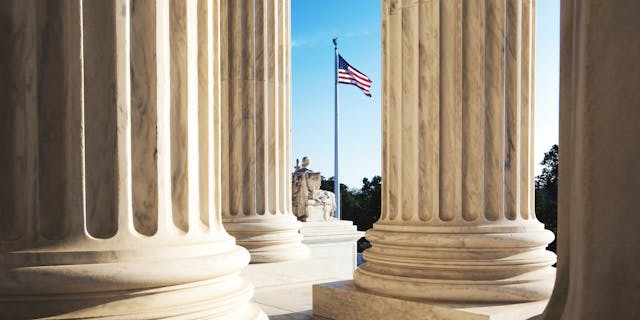On February 20, 1961, the 35th president of the United States, John F. Kennedy, provided a profound message to the U.S. Congress regarding the importance of education. “Our progress as a nation can be no swifter than our progress in education,” stated President Kennedy. “Our requirements for world leadership, our hopes for economic growth, and the demands of citizenship itself in an era such as this all require the maximum development of every young American's capacity.”
In his address, the president even spoke to the financial realities of higher education and institutional sustainability. “Inasmuch as tuition and fees do not normally cover the institution's actual expenses in educating the student, additional allowances to the college or university attended should accompany each scholarship to enable these institutions to accept the additional students without charging an undue increase in fees or suffering an undue financial loss.”
In my interpretation, the president’s intentions were to acknowledge that postsecondary institutions, in their commitment to the education of America, should be properly supported financially to meet the economic and workforce demands of an evolving society. However, meeting this educational charge should not be unjustly achieved on the backs of the very students themselves.
Reflecting about President Kennedy’s words and works regarding education, I wonder what he would say about the fact that Americans have now amassed at least $1.7 trillion in student debt.
In June, within a matter of hours, the U.S. Supreme Court handed down two decisions with significant implications for higher education. On June 29, the Supreme Court reversed decades of precedent and efforts birthed during the Civil Rights Movement by ending race-conscious admission programs at colleges and universities across the country. On June 30, the Supreme Court blocked the student loan forgiveness plan established by 46th President Joe Biden and his administration. According to the Education Data Initiative, in the last decade student loan debt increased by an average of $68.6 billion every year. Recently, the Initiative published that the average federal student loan debt balance is $37,717 while the total average balance (including private loan debt) may be as high as $40,505.
In an official statement, President Biden expressed that his administration’s debt-relief plan “would have been the lifeline tens of millions of hardworking Americans needed as they try to recover from a once-in-a-century pandemic.” The plan, which would have eliminated an estimated $400 billion in student debt according to the Congressional Budget Office, was denied by the court due to what it found as an overreach of jurisdiction. “The Secretary asserts that the HEROES Act grants him the authority to cancel $430 billion of student loan principal. It does not,” wrote Chief Justice John Roberts.
Our nation is grappling with a philosophical decision regarding whether the country is responsible for its own student debt crisis. Or, if student debt is a matter of personal choice, as described in 2022 by Jason Wingard. Derek Bok in his 2003 book, “Universities in the Marketplace: The Commercialization of Higher Education,” provided an account of where higher education in America made the shift during the end of the 20th century toward commercialization.
This systematic shift, in my opinion, ushered in two beliefs that society is still unlearning today: a) earning potential is directly correlated with reputation of one’s alma mater; and b) community colleges were designed for students not ready to attend a university — thus, creating a stigma. These two falsities combined have enlarged America’s racial wealth gap.
According to the Brookings Institution, white college graduates have over seven times more wealth than Black college graduates. Even more striking is another Brookings study that found that the Black-white disparity in student loan debt more than triples after graduation.
These forces have played out in my own life. Never did I believe as a community college student who tested at developmental levels in math that I would one day become a college president. Especially when I was informed through an array of K-12 educators, academic counselors, and community professionals that jobs such as a college president were reserved from those from more prestigious institutions of higher education.
Armed with this false information, I achieved my associate degree debt-free and embarked upon a quest to earn a four-year and master's-level degree from an institution that I honestly could not afford. However, I took out student loan after student loan with the belief that I was investing into my future. By no means is my student debt the responsibility of the institution I chose. However, little did I realize the long-term implications of student debt and that more affordable pathways existed toward the fulfillment of my dreams that better aligned with the financial realities of a child from a working-class, single-parent home.
When writer James Truslow Adams popularized the phrase "American dream" in his 1931 book, “The Epic of America,” he described the dream as, “a land in which life should be better and richer and fuller for everyone, with opportunity for each according to ability or achievement.” For me, perhaps student loans were the price I had to pay to obtain my piece of the American dream. However, with rising tuition costs moving the return on investment for a college degree further and further out of reach for so many, should there be any surprise that America’s confidence in higher education is at an all-time low?
Now is the time for our country to provide a solution that justly stops financing postsecondary education on the backs of students with dreams.


